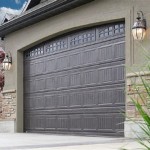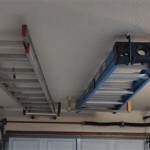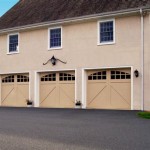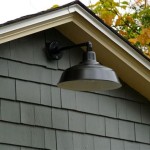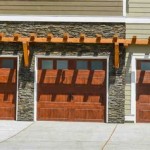How Much Does It Cost to Build a Cinder Block Garage?
Constructing a cinder block garage is a viable option for homeowners seeking a durable and cost-effective storage solution for vehicles, tools, and other belongings. Understanding the costs associated with such a project is crucial for budgeting and planning purposes. Several factors influence the overall expense, including the size of the garage, complexity of the design, regional material and labor costs, and any additional features incorporated into the structure.
This discussion will delve into the various components that contribute to the total cost of building a cinder block garage, providing a comprehensive overview to assist in making informed decisions. We will analyze material costs, labor expenses, and other pertinent factors that determine the final price tag. This information aims to equip individuals with the knowledge necessary to estimate project expenses and manage their budgets effectively.
Key Cost Components of a Cinder Block Garage
The overall cost of constructing a cinder block garage can be broken down into several key components. These include materials, labor, foundation and concrete work, roofing, doors and windows, electrical and plumbing (if applicable), and permits and inspections.
Materials:
The cost of materials represents a significant portion of the overall project expense. Cinder blocks, also known as concrete masonry units (CMUs), are the primary building material. The price of CMUs varies depending on size, strength, and manufacturer. Other essential materials include mortar, rebar, concrete for the foundation, roofing materials (shingles, metal, etc.), lumber for framing (if needed), doors, windows, and hardware. The prices of these materials are subject to fluctuations based on market demand, regional availability, and supplier pricing policies.
Labor:
Labor costs encompass the wages paid to construction workers, including masons, carpenters, roofers, electricians, and plumbers. Labor rates vary depending on location, experience level, and prevailing wage laws. Hiring experienced and qualified professionals is crucial to ensure the structural integrity and longevity of the garage. Negotiating labor rates and obtaining multiple quotes from different contractors is advisable to secure competitive pricing. Projects that require specialized skills will inherently come with a higher labor cost.
Foundation and Concrete Work:
A solid foundation is paramount for a durable and stable garage. The type of foundation required (e.g., slab-on-grade, stem wall) depends on soil conditions and local building codes. Concrete is used extensively for the foundation, footer, and garage floor. The cost of concrete depends on the quantity required, mix design, and delivery charges. Additional work may be required, such as excavation, grading, and compaction, which will further add to the overall expense of this component.
Roofing:
The roof serves as a crucial barrier against the elements. Roofing materials include asphalt shingles, metal roofing, tile, and other options. The choice of roofing material depends on budget, aesthetic preferences, and local climate conditions. The cost of roofing materials varies widely, with metal roofing generally being more expensive than asphalt shingles. Installation costs depend on the complexity of the roof design and the labor rates charged by roofing contractors. Properly installed roofing is essential to the garage's longevity.
Doors and Windows:
Garage doors and windows provide access, ventilation, and natural light. The cost of garage doors depends on the type (e.g., sectional, roll-up), material (e.g., steel, wood), and features (e.g., insulation, automatic opener). Windows are typically less expensive but require careful selection to ensure energy efficiency and weather resistance. Installation costs for doors and windows depend on the complexity of the installation process and the labor rates charged by the installer. Security and durability are considerations when selecting these features.
Electrical and Plumbing:
If the garage is intended for use as a workshop or requires lighting and power outlets, electrical wiring is necessary. Electrical work includes installing wiring, outlets, switches, and lighting fixtures. If plumbing is required for a sink or water connection, additional costs will be incurred for piping, fixtures, and connections to the main water supply. Electrical and plumbing work must be performed by licensed professionals to ensure compliance with safety regulations and building codes. The cost of these services are frequently dependent on local utility rates and the complexity of the garage's design.
Permits and Inspections:
Building permits are required by most municipalities before construction can begin. The cost of permits varies depending on location and the size of the project. Inspections are conducted throughout the construction process to ensure compliance with building codes and safety regulations. These fees can add a few hundred to a few thousand dollars to the total cost, depending on the local requirements. Failure to obtain the required permits can result in fines and delays.Factors Influencing the Cost of a Cinder Block Garage
Beyond the individual components, several overarching factors influence the total cost of a cinder block garage. These include the garage's size, design complexity, site conditions, and geographic location.
Size:
The size of the garage is a primary determinant of the cost. A larger garage requires more materials and labor, resulting in a higher overall expense. The foundation area, wall height, and roof size all increase proportionally with the garage's overall dimensions. Consider the intended use of the garage when determining its size to ensure adequate space for vehicles, storage, and other activities. It is generally more cost-effective in the long run to build a slightly larger garage than to realize the initially planned space is insufficient. Careful consideration should be given to future storage needs.
Design Complexity:
The complexity of the garage design significantly influences the cost. A simple rectangular design is generally less expensive than a more elaborate design with multiple angles, curves, or custom features. Complex designs require more specialized labor and may necessitate the use of custom-cut materials, both of which increase costs. When considering design elements, prioritizing functionality can assist in keeping construction costs under control. Unusual design features should be weighed carefully against budget constraints.
Site Conditions:
Existing site conditions can add to the project's expense. If the site is sloped, requires extensive excavation, or has poor soil conditions, additional work will be necessary to prepare the site for construction. Removing trees, rocks, or other obstructions can also add to the cost. Addressing drainage issues is crucial to prevent water damage and ensure the longevity of the garage. A comprehensive site assessment prior to construction is recommended to identify and address potential challenges.
Geographic Location:
Material and labor costs vary significantly depending on geographic location. Areas with higher cost of living typically have higher labor rates and material prices. Local building codes and regulations can also influence costs. Obtain quotes from multiple contractors in your area to get an accurate estimate of local pricing. Consider seasonal variations in construction costs, as some times of the year may be more expensive due to higher demand.Cost-Saving Strategies for Building a Cinder Block Garage
While building a cinder block garage can be a significant investment, several strategies can help reduce overall costs. These include simplifying the design, exploring alternative materials, obtaining multiple quotes, and performing some of the work yourself.
Simplify the Design:
As mentioned earlier, a simple rectangular design is generally more cost-effective than a complex design. By minimizing the number of angles, curves, and custom features, you can reduce material and labor costs. Focus on functionality and prioritize essential features over purely aesthetic considerations. Pre-engineered designs can also offer cost savings compared to custom designs. Consider if a standard design can adequately fulfill the required function of the garage.
Explore Alternative Materials:
While cinder blocks are a common and durable building material, exploring alternatives may offer cost savings. Depending on local climate conditions and building codes, wood framing or metal framing may be viable options. Compare the cost of different materials and consider their long-term durability and maintenance requirements. Some materials, like recycled concrete products, may also offer environmentally friendly and cost-effective solutions. Researching material options could yield substantial savings.
Obtain Multiple Quotes:
Getting quotes from multiple contractors is essential to ensure you are getting a competitive price. Compare the quotes carefully, paying attention to the scope of work, materials included, and payment terms. Don't automatically choose the lowest quote; consider the contractor's experience, reputation, and references. Verifying insurance and licensing is important to prevent liabilities. Asking contractors to itemize their bids to break down the costs can help facilitate informed decisions.
Perform Some of the Work Yourself:
If you have the skills and experience, performing some of the work yourself can save on labor costs. Tasks such as demolition, site preparation, painting, and landscaping are often suitable for DIY projects. However, it is crucial to avoid attempting tasks that require specialized skills or knowledge, such as electrical wiring or plumbing, as these can be dangerous and may violate building codes. Being realistic about your capabilities and seeking professional assistance when needed is crucial.In summation, building a cinder block garage involves numerous cost considerations. A thorough understanding of these components, factors, and cost-saving strategies is essential for effective budgeting and project management. Homeowners are encouraged to perform adequate research to make well-informed decisions that align with their individual resources and requirements.

How To Calculate Many Concrete Blocks Are Needed For A Garage

How To Build A Garage Work Part 1

Building Double Garage First Lift In 4hrs

Build An Off Grid Bunkhouse Garage Cellar Backwoods Home
Custom Garage Builder In Chicago Il Construction

2025 Cinder Block Wall Cost Concrete S To Build

Image Result For Concrete Block Garage

Top 5 From A Diy Garage Project To Low Cost Prefab Home Homify
Custom Garage Builder In Chicago Il Construction

Painted Cinderblock Garage Merrypad
Related Posts

